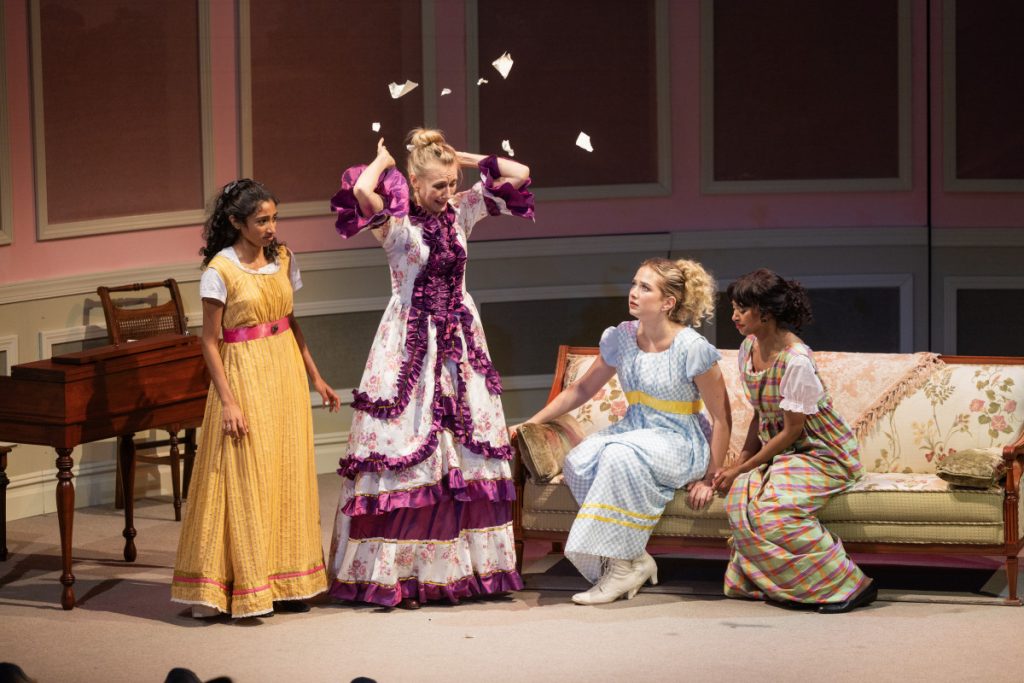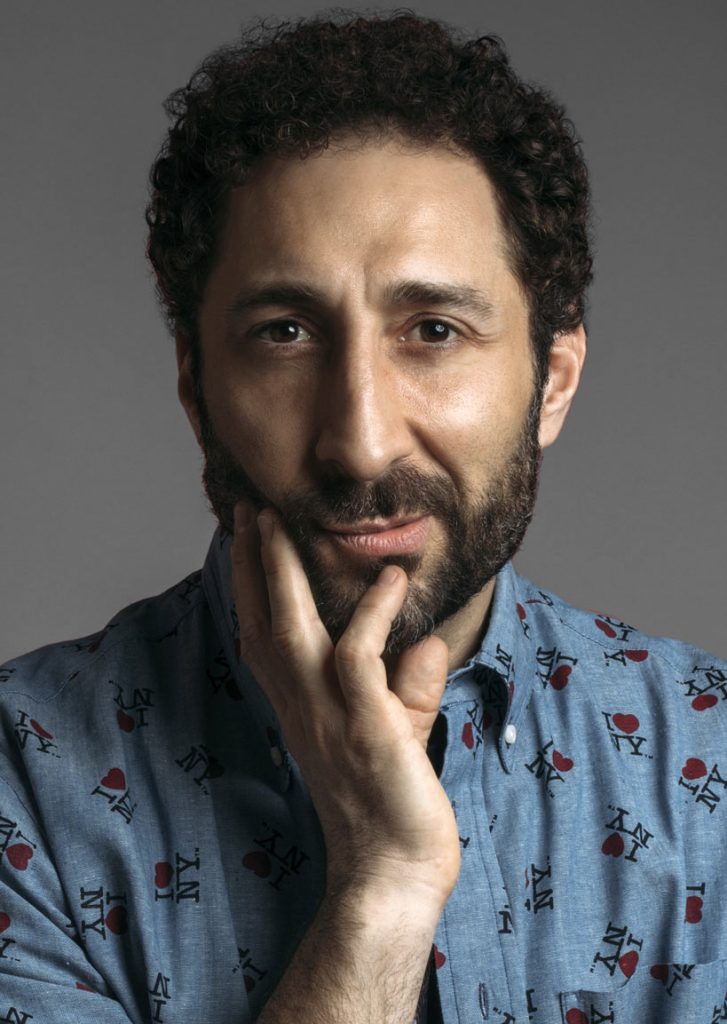
Stacey Federoff
copy chief desk
For Christopher Tramantana, clowning does not mean negotiating big shoes or a tiny car.
“No squirting flowers; no balloon animals,” he said. “I’m more interested in helping students uncover and reconnect with their sense of play.”
Tramantana, who has taught clowning at New York University and through his own school called The Beautiful Idiot, served as an instructor for the physical art with the cast of Chautauqua Theater Company’s Pride and Prejudice which concludes its run with performances at 4 p.m. Saturday and 2:30 p.m. Sunday in Bratton Theater.

In the theatrical sense, the clown is a character vulnerable enough to try things and fail, with comedy resulting from sharing the pleasure they have from it through fun with the audience.
To explain, Tramantana quoted French actor and movement coach Jacques LeCoq: “The clown is the person who flops, who messes up his turn, and, by so doing, gives his audience a sense of superiority.”
He worked with the cast assembled on the grounds for a week to complement what they were preparing for the Bratton stage through choreography, which they had worked on for a week prior to that with Katie Rose McLaughlin, choreographer and movement coach for the production.
“Knowing that Christopher was going to come in, I could just lay the groundwork so that they were open and ready and excited to receive what he was going to give them,” said McLaughlin, who is also trained in clowning.
Then, Tramantana looked for ways of “making it funnier” or “making it more playful,” he said.
He watched the actors rehearse to find where there were “blocks” and where there was “flow,” then worked with the cast on pace and rhythm, the “speed of fun,” or “making big choices and flopping.”
Tramantana said he worked with the group on acting games that “diagnosed” the group and the performer to see where they were comfortable and uncomfortable, pushing them into the uncomfortable place.
“When they’re uncomfortable, they’re vulnerable and when they’re vulnerable, they can be funny,” he said.
Playwright Kate Hamill’s adaptation of the British Regency-era Jane Austen novel already included “games” for the actors to play with each other and inject humor.
“I worked with them on playing those games with more abandon and more ferocity, and other places they can find other little games,” he said.
McLaughlin said clowning teaches a performer about their body and how to use it to not only convey emotion, but to tell a story through self-awareness of the body.
“Your body holds a lot, it holds the stories we have lived,” she said. “It holds love, it holds traumas, it holds fear.”
Bringing that out in front of an audience means feeling open and vulnerable on stage to develop that physical storytelling, McLaughlin said.
In writing the play, Hamill incorporated some notes regarding the characters in her script, calling Bingley, for example, “a bouncy, impetuous retriever, inclined to exaggeration,” but then the actor has to interpret that description, McLaughlin said.
“The style of clown that I love is just about people feeling really human and open and vulnerable on stage,” she said. “It’s about watching someone play, watching someone be stupid, watching someone fail and then try again.”
In the production, there are some moments that were meticulously crafted while others were left open-ended, “allowing the actor to play and find joy in it,” McLaughlin said.
What makes something funny comes from play, particularly the way children play, Tramantana said.
“You have to consciously remind yourself how to play with abandon in the way that we played when we were young before we knew shame, before we knew judgment,” he said. “Children play for validation, they play for fun, and they don’t tell the other children how to play.”
Clowning celebrates individuals in that way, since every person experiences play differently, McLaughlin said.
“Every human has lived a different life; no two bodies are the same,” she said. “Clowning really honors the history that your body holds, and that is something everyone should celebrate.”
The clown as an actor tries to harness and embody that playful spirit that wants to share with others for sheer enjoyment, Tramantana said.
“We come to the theater for an experience, and the performer comes out and gives us permission to dream,” Tramantana said.
One of Tramantana’s clowning teachers once told him: “It is more generous to share your pleasure than your pain.”
The world is full of pain, but “it’s a greater risk and a more generous act to share your pleasure,” Tramantana said. “The more we can cultivate that generosity and that courage to share what you love — not just in performing; it’s in life too — the world needs more of your pleasure. It needs to share more delight.”




